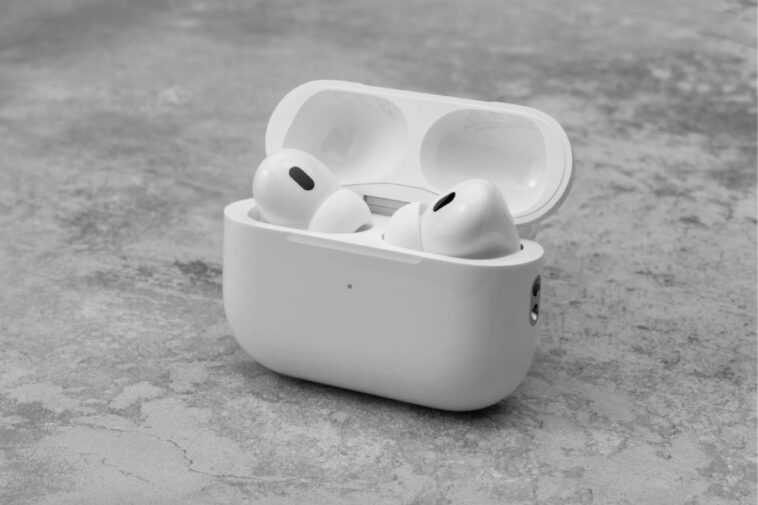If you encounter any problems, here’s how to reset AirPods and AirPods Pro, which are versatile for activities such as watching movies, listening to music, or enjoying audiobooks. However sometimes they might experience connectivity issues, battery problems, or other malfunctions. Learning how to reset AirPods can often resolve these issues and restore their functionality.
Apple introduced AirPods in 2016, revolutionizing the wireless earbud market with their advanced technology and user-friendly design. The original AirPods quickly gained popularity for their ease of use, seamless connection with Apple devices, and impressive sound quality. Since then, Apple has released several updates and versions, including the AirPods Pro and AirPods Max, each offering additional features such as active noise cancellation and spatial audio. Whether you’re experiencing connectivity problems, audio distortions, or issues with pairing, resetting your AirPods can often resolve these concerns and restore their performance.
How To Reset Airpods
1. Check Battery Levels
Before you start the process of how to reset AirPods, make sure your AirPods and their charging case have sufficient battery life. If your AirPods are not turning on or connecting, the first step is to check if they are charged. Place them in the charging case and ensure that the case itself is charged by connecting it to a power source. A lack of battery power can sometimes be mistaken for other issues, so verifying the battery levels is crucial.
2. Forget Device Connection
To begin resetting your AirPods, you need to disconnect them from any devices they are paired with. On your iPhone or iPad, go to the Bluetooth settings and find your AirPods in the list of connected devices. Tap the “i” icon next to your AirPods and select “Forget This Device.” This step is essential in how to reset AirPods, as it removes the existing connection and allows you to start fresh. Repeat this process on any other devices your AirPods may be connected to, ensuring a complete disconnection.
3. Reset AirPods Case
With your AirPods disconnected from all devices, it’s time to reset the AirPods case. Place both AirPods in the charging case and keep the lid open. Locate the small setup button on the back of the case. Press and hold this button for about 15 seconds until you see the status light flash amber and then white. This indicates that the reset process is complete. Knowing how to reset AirPods includes understanding the visual cues that signal a successful reset. The amber light means the AirPods have been reset, while the white light indicates that they are now in pairing mode.
4. Re-Pair AirPods
Once you have reset your AirPods, you will need to pair them again with your devices. With the lid of the charging case open, bring the case close to your iPhone or iPad. A setup animation should appear on your device’s screen. Follow the on-screen instructions to complete the pairing process. If you’re using an Android device or another type of Bluetooth device, you can pair your AirPods by selecting them from the list of available devices in the Bluetooth settings. This step is crucial in how to reset AirPods, as it re-establishes the connection between your AirPods and your devices.
5. Test AirPods
After successfully pairing your AirPods, it’s important to test them to ensure that they are functioning correctly. Play some music or make a call to check if the audio quality is clear and if the AirPods are connecting properly. This step confirms that the reset process has resolved any previous issues. If you’re still experiencing problems, it may be necessary to repeat the reset process or consult Apple Support for further assistance.
6. Update Firmware
Occasionally, issues with AirPods can be related to outdated firmware. Ensure that your AirPods are running the latest firmware by keeping them connected to your Apple device. Firmware updates are usually installed automatically, but you can check for updates by going to the Bluetooth settings on your iPhone or iPad and selecting your AirPods. Keeping your AirPods updated is an important part of how to reset AirPods to maintain optimal performance.
7. Clean AirPods
If you continue to experience issues after resetting your AirPods, consider cleaning them. Dirt, earwax, and other debris can affect performance and connectivity. Use a soft, dry cloth to clean the exterior of the AirPods and a small, soft brush to clean the speaker grills. Proper maintenance is an essential part of ensuring your AirPods work effectively.
8. Contact Apple Support
If all else fails and your AirPods still do not function properly, it may be time to contact Apple Support. They can provide further troubleshooting steps or arrange for a replacement if necessary. Knowing how to reset AirPods includes recognizing when professional help is needed to resolve persistent issues.
9. Check for Physical Damage
Inspect your AirPods and charging case for any signs of physical damage. Cracks, dents, or other damage can affect performance and may require repair or replacement. Understanding how to reset AirPods involves checking for and addressing any physical issues that could be contributing to the problem.
10. Reset Network Settings
In rare cases, resetting your device’s network settings may help resolve issues with AirPods connectivity. On your iPhone or iPad, go to Settings > General > Reset > Reset Network Settings. This will remove all saved Wi-Fi networks and passwords, which may help with connectivity issues. Remember to reconnect to your Wi-Fi networks after performing this reset.





GIPHY App Key not set. Please check settings